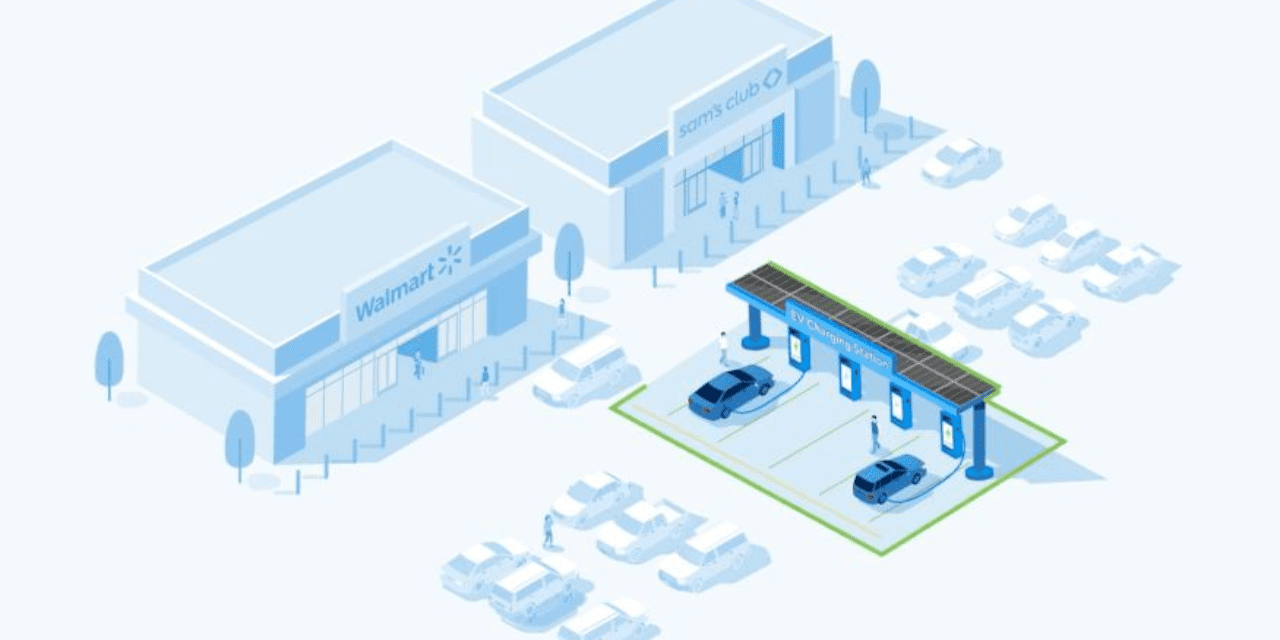A major EV fast-charging rollout is planned by a US retail company.
Walmart, a US retailer, has said that it will install fast charging stations at thousands of its locations around the country. The largest retailer in the nation, Walmart, which generates annual sales of $600 billion, wants to equip each of its thousands of stores and Sam’s Club locations with the equivalent of four EV fast-charging stations. The over 1,300 EV fast-charging stations that are now accessible at more than 280 Walmart facilities would be supplemented by this anticipated expansion. By switching from the third-party chargers currently installed on Walmart locations to owner-operated devices, the corporation would undergo a sea change.
Notably, the second-largest category for household spending in the US in 2021 was transportation. spending, second only to housing. Walmart intends to offer ‘Every Day Low Price’ charging with its new fast-charging plan, reducing the cost of consumers’ private travel. GreenBiz estimates that 70% of Walmart’s planned locations for additional chargers are in low- and moderate-income areas.
Proliferating EV charging offers a problem.
The conversion to electric modes of transportation is becoming more and more crucial as the deadlines for the sale of petrol and diesel automobiles draw near. But uptake is still far below what is needed. In the drive to promote the adoption of EVs, the cost of a new car is a significant barrier, but the availability of EV charging stations is also a significant roadblock. Concerns and issues facing potential buyers include theCost of installing an off-road charger (if the homeowner is able to do so), the accessibility of on-street charging, the presence of EV charging stations in remote areas, the length of time required for charging, and the cost of charging the car. Another restriction is what is known as “range anxiety,” which occurs when drivers are constrained in how far they will go by the battery life of their EVs, particularly while EV charging infrastructure is still patchy countrywide.
This is where businesses like Walmart can help; according to the retailer, 90% of Americans currently live within 10 miles of one of its stores or clubs, making it “uniquely positioned to deliver a convenient charging option that will help make EV ownership possible regardless of where people live.” in rural, suburban or urban areas.”Whilst it may not replace localised charging or home charging, the delivery of a nation-wide network will help alleviate some of the concerns individuals have regarding the range of EV vehicles. Private investment by retailers can work in tandem with public sector improvements to solve the issue of EV charging blackspots. As part of the Bipartisan Infrastructure Law, the US government last year confirmed it is committing $7.5 billion to electric vehicle charging, aiming to help build a national network of 500,000 electric vehicle chargers. The plan is to deploy these chargers along highway corridors to facilitate long-distance travel as well as local transportation

